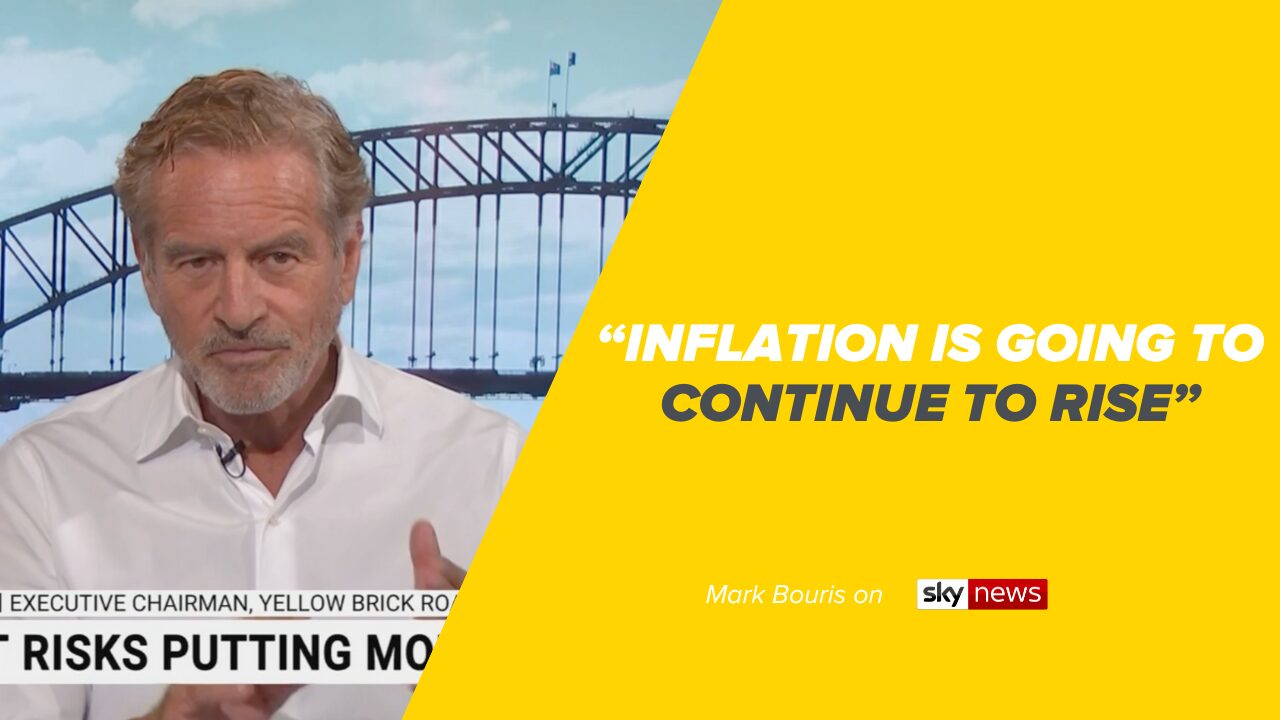In this article:

Following Tuesday’s federal budget, delivered by Treasurer Jim Chalmers, there have been some criticisms that the lasting impacts of the budget may contribute to inflation and the rising cost of living.
Mark Bouris joined other commentators and economists in stressing that the second budget delivered by the Labor Government will do nothing but “keep inflation rolling.”
“Inflation is going to continue to rise,” Mr Bouris told Sky News Australia.
Bouris said that inflation is “not going to fall at the rate we’re expecting, so it will fall, but prices will still rise, albeit at a slower rate. However, we’re not going to see (a fall in inflation) of 3.25% within 12 months’ time.”
“Which means the only thing the Reserve Bank can do is put up the interest rates again to push inflation down to where they want it.”
Housing Affordability…again
Housing supply and affordability is one of the key issues across the nation right now and it’s caused serious tension in parliament this week, as the senate failed to pass a bill approving Labor’s $10 billion Housing Australia Future Fund.
The Fund is a key feature of the Government’s campaign commitments to deliver social and affordable housing, in the form of 30,000 affordable homes over five years.
“The Greens have teamed up with the Coalition, which is a pretty unusual outcome and Senator Pocock, as well as also against passing [the budget] in the Senate. And they’re all jockeying for different positions and asking for various outcomes. And at this stage, the Labour Party is not giving in. So it may be a failed attempt to get this through, which is really designed, as you said, to help Australians get into affordable housing,”
With reports of approximately 1.5 million migrants expected to arrive in Australia in the next five years and economists warning that further rate rises are still to come, Bouris told Sky News it’s “quite an interesting environment” and could spell a longer period of trouble for mo
“Everybody keeps saying, ‘people used to do it used to be tougher, say in the 90s and late 80s’, when inflation was 11% and interest rates were 17% percent. But what we’ve got to remember, Australians today have borrowed around six times more, relative to their income, than they did back in the 90s.”
“So as a result of that, we don’t need a 17% interest rate in order to have the same effect as it had back in the 90s. In fact, the current variable rate is around seven and a half to 8%. That rate takes a far bigger chunk of everybody’s net pay than it did in the 90s.”
“Right now [mortgage repayments are] taking around 58% of a borrowers’ net income after tax. So it’s a big deal. And that sort of flows straight into the whole question of: are these interest rates effective enough to control inflation?”
“And sure, it definitely is stopping borrowers, people who have borrowed money, people who have mortgages, it is definitely stopping them from spending money. In fact, probably, it stopped them spending money, four or five rate rises ago. The question is, what about the other people?”
See all of Mark’s analysis by clicking the video above.



